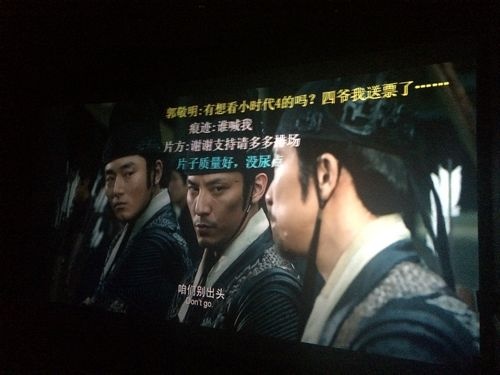
The bullet comment screening of "Embroidery Spring Knife" was cold
Next: Responding to bullet comments

Next: Responding to bullet comments
As the saying goes
"Don’t go with the old, don’t come with the new"
The State Council issued it in March
"Driving large-scale device updates and
Notice of the Trade-in Action Plan for Consumer Goods
Cars are the current round of "trade-in" action
One of the key points
Since March this year
Launched in many places across the country
Trade-in implementation plan for consumer goods
Car trade-in policies are frequently introduced
So, your car
Are you ready for a new one?
The new energy vehicle market is booming and unstoppable
Have you paid attention to the Beijing International Auto Show that just ended not long ago? The auto show ended in a hot manner, and the "smart" and "electric" process of the auto market has exceeded imagination.
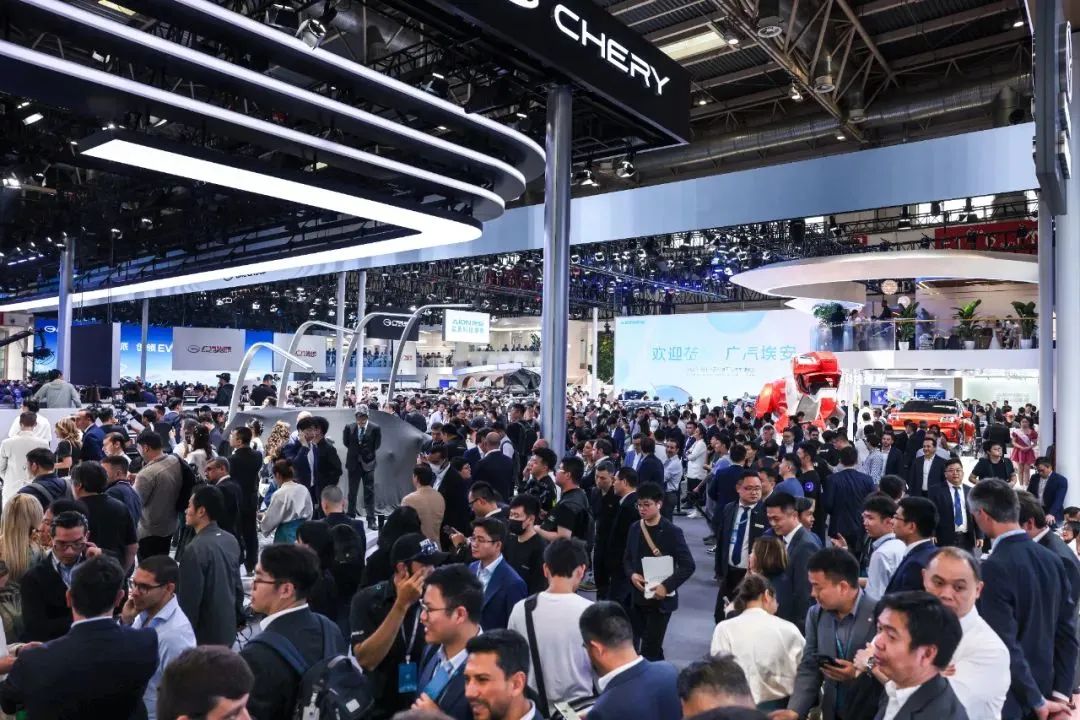
Beijing International Auto Show official website/map
The number of new energy vehicles that attracted particular attention at this auto show. The event organizing committee officially disclosed that 117 cars were the world’s first cars at this Beijing International Auto Show, of which 30 were the world’s first cars for multinational companies, and a total of 278 new energy models were unveiled at the auto show. Unlike the 2020 Beijing Auto Show, among the exhibitors, more than 20 brands such as Xiaomi, JK, Zhiji, Equation Leopard, and Ideal participated in the exhibition for the first time, and most of them were brands that mainly promoted new energy vehicles.
In addition to new and bright new energy vehicle companies, traditional car companies also bring new electric brands. For example, the only two models on display at Porsche’s booth are new energy vehicles – the new Taycan and the new pure electric Macan; Audi debuted with a lineup of pure electric models, and the new generation of pure electric model Audi Q6L e-tron ushered in the world debut; Honda exhibited a new electric brand "Ye"; Dongfeng Nissan debuted with four new energy concept cars…
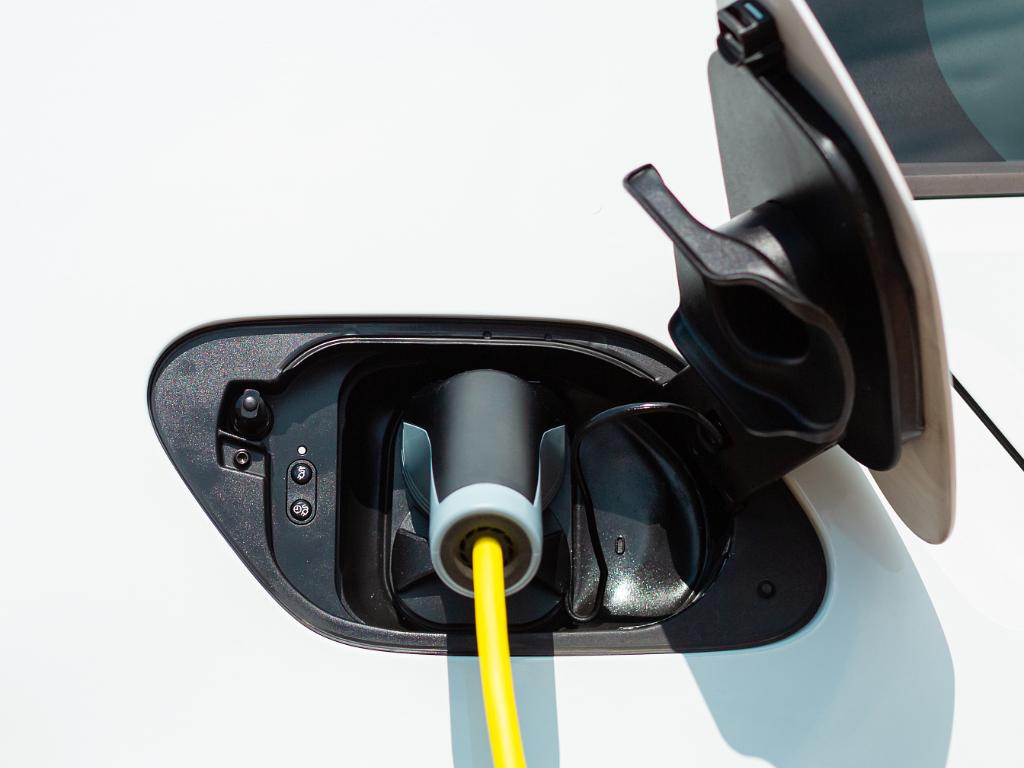
In addition, at this auto show, CATL released a new lithium iron phosphate battery – Shenxing PLUS, which combines 1000 kilometers of battery life and 4C super charging characteristics. Charging for 10 minutes can replenish 600 kilometers of battery life, and the super replenishment speed of "1 kilometer per second" is truly realized.
At this auto show, we can observe the intelligent competition in the new track of the automotive market. XPeng Motors made an appearance at the auto show with its Xiaopeng X9, G6 and other models, and announced the global debut of the AI Tianji system, which will be fully pushed on May 20; Geely Automobile showcased the new achievements of intelligent technology at the auto show – GEA global intelligent new energy architecture, Galaxy 11-in-1 intelligent electric drive, AI digital chassis and other dozens of new industry technologies; Nezha Automobile said that it will apply AI technologies such as 360 intelligent brain, AI search and digital people in the cockpit and other fields in the future… In addition, in the parts exhibition area, about 500 parts companies and technology companies from 13 countries and regions exhibited their innovative achievements, of which the intelligent network and new energy sectors accounted for 51% of the total exhibition area.
The era of "smart" and "electrification" of automobiles has come. Previously, the Institute of Intelligent Vehicles of Gaogong released a report saying that 2024 will be a new turning point in the new energy market. The era of intelligent fuel vehicles is coming to an end, and new energy and intelligence will be deeply integrated and developed. Friends, are you excited about the "rejuvenation" and upgrade of automobiles?
Heavy positive policies are coming! Trade-in!
"New cars" continue to emerge at the Beijing Auto Show, and the continuous introduction of favorable policies has also injected "a boost" into the "new car" market prospects.
A few days ago, the Ministry of Commerce, the Ministry of Finance and other seven departments issued the "Detailed Rules for the Implementation of Automobile Trade-in Subsidies" (hereinafter referred to as the "Detailed Rules"). The Detailed Rules specify that from the date of issuance to December 31, 2024, individual consumers who scrap National III and below emission standard fuel passenger cars or new energy passenger cars registered before April 30, 2018, and purchase new passenger cars that meet energy-saving requirements can enjoy a one-time fixed subsidy. Among them, for scrapping the above two types of old passenger cars and purchasing eligible new energy passenger cars, the subsidy is 10,000 yuan; for scrapping National III and below emission standard fuel passenger cars and purchasing 2.0 liters and below displacement fuel passenger cars, the subsidy is 7,000 yuan.
Gasoline passenger cars registered before June 30, 2011 (inclusive), diesel passenger cars registered before June 30, 2013 (inclusive) and other fuel types passenger cars are all within the scope of the trade-in subsidy for vehicles under the third national level. Other fuel types include mixed oil, natural gas, liquefied petroleum gas, methanol, ethanol, hydrogen, biofuels, etc. Refer to the implementation for imported cars.
The implementation time is from the date of issuance of the Detailed Rules (ie April 24, 2024) to December 31, 2024. The application time for subsidies is from April 24, 2024 to January 10, 2025.

Since the beginning of this year, many places across the country have also continued to introduce new energy vehicle replacement subsidy policies to further stimulate the vitality of the domestic automobile market. Beijing is vigorously promoting the car trade-in policy, and consumers who scrap and update can get a subsidy of up to 10,000 yuan; Ningxia carries out car trade-in subsidy activities, with a maximum subsidy of 10,000 yuan; Nanjing City, Jiangsu Province has a maximum subsidy of 5,000 yuan for car consumption in 2024; Jinan City, Shandong Province has a maximum subsidy of 5,000 yuan for car trade-in subsidy activities in 2024…
It is worth noting that before and after the implementation of the "Detailed Rules", many car companies have also launched trade-in preferential activities. For example, Mercedes-Benz launched a "change policy, Mercedes-Benz doubles" limited-time activity, and eligible passenger car users can get a car purchase subsidy of up to 15,000 yuan when purchasing Mercedes-Benz vehicles; Hongqi brand updated the limited-time car purchase replacement subsidy, covering a variety of its models, with a maximum subsidy of 50,000 yuan; Changan Automobile launched a trade-in subsidy activity. Combined with state subsidies and Changan subsidies, there are 17 models, with a maximum comprehensive subsidy of 57,000 yuan. The activity time is from April 27 to May 8.

Car "refresh" upgrade
The policy is favorable, and the superimposed discounts are coming.
This wave of "replacement" dividends
Don’t miss it.
However
No matter what car you drive
The oil treasures are all at the PetroChina gas station
Provide you with a full range of supplementary experience
Come and see us
"Refresh" upgraded gas station
????
In Hubei
Jiangyu gas station

Hubei Sales Wuhan Branch Jiangyu Gas Station, as PetroChina’s first new energy comprehensive service station in Hubei, covers six business formats such as refueling, charging, energy storage, car washing, steam clothing, and photovoltaic power generation. It adopts an integrated system of optical storage and charging, with 22 super fast charging parking spaces and 1 200-degree professional energy storage equipment. The whole system is equipped with Huawei liquid-cooled charging equipment as standard, and uses AI big data model algorithms to automatically generate power regulation instructions to ensure the intelligent safety, intelligent operation, and intelligent management of the site. The station has a maximum service charging vehicle of more than 500 times in a single day, bringing customers a plug-and-charge, charge-and-go charging experience, and realizing "a cup of coffee, full power start".
In Guangdong
Boxing gas station charging station
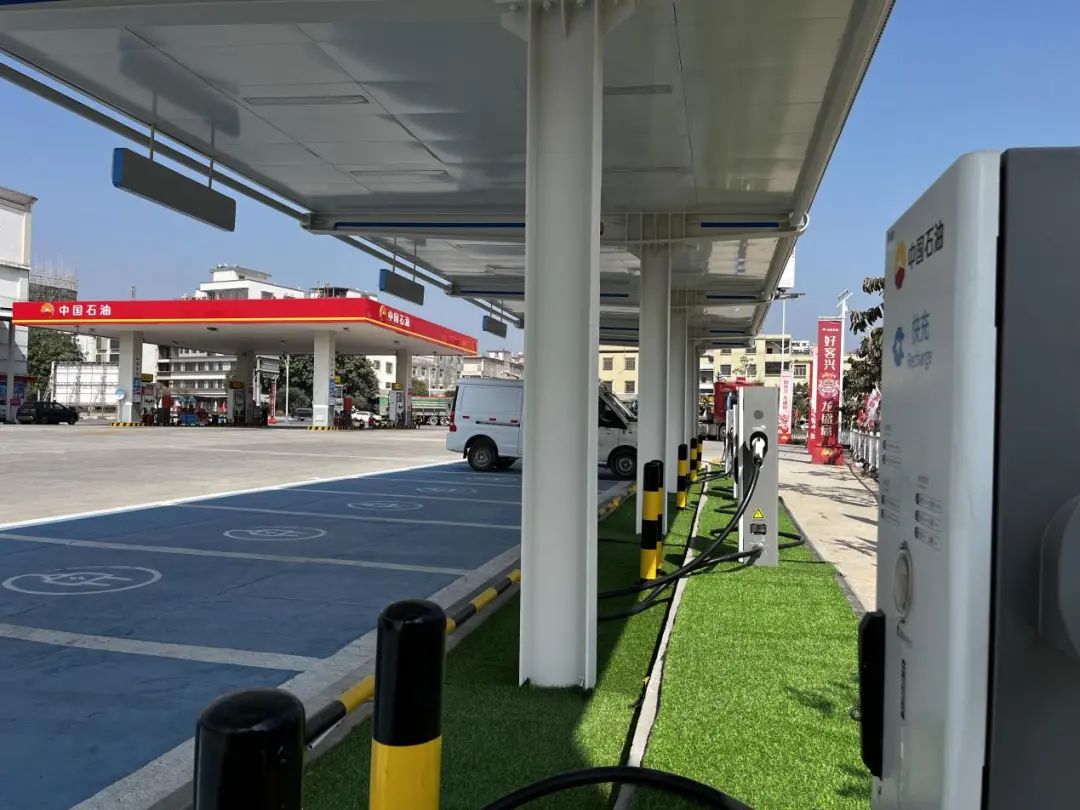
On January 16, 2024, the Baixing gas station charging station of Jieyang (Shantou) Branch of Guangdong Sales was officially put into operation. The charging station has a 600kW intelligent charging host, a super charging gun, and 8 fast charging guns. It can charge 9 electric vehicles at the same time. The charging operation is simple, efficient, convenient and fast. The station is also equipped with the province’s first standardized and customized charging shed. The shed body is made of carbon steel, which has the performance of resisting strong typhoons. The appearance is mainly blue and white. The roof of the shed is decorated with luminous signs and LED light strips. Under the embellishment of "gem flowers", the overall image is simple, fashionable, smart and beautiful. The station is committed to building a comprehensive energy supply station that integrates refueling, charging and other functions.
In Ningxia
Zhongwei Industrial Park heavy truck exchange and charging station

At the end of last year, the heavy truck replacement and charging station in Zhongwei Industrial Park of Kunlun Green Energy (Ningxia) Technology Co., Ltd., a joint venture company of PetroChina Ningxia, was put into operation smoothly, marking an important step in the "PetroChina" brand heavy truck replacement and charging infrastructure building in Ningxia. On the basis of the original refueling and gas service, the station is equipped with heavy truck replacement equipment, which can be applied to tractors, muck trucks, mixer trucks and other models, which can ensure safe and efficient operation 24 hours a day. The single battery replacement time of the power replacement heavy truck is 3 to 5 minutes, and it can provide 168 full charges and full replacements every day. After the sale and operation, the carbon emission reduction can be achieved by 6850 tons per year. The station can charge four heavy trucks and eight passenger cars at the same time, and has a 24-hour Kunlun Hospitality Convenience Store, equipped with toilets, showers, washing facilities and rest areas. The station fully demonstrates the functional advantages of PetroChina’s "people, cars and life" ecosystem, allowing customers to achieve "comprehensive oil and gas and electricity replenishment, smooth traffic and people’s hearts".
In Xinjiang
Tianshan Road refueling station

Xinjiang sales Shihezi Tianshan Road refueling and gas station is the first comprehensive energy station in Shihezi City, 8th Division of Xinjiang Production and Construction Corps. The station covers an area of 7,200 square meters and is equipped with 5 intelligent refueling machines and 18 refueling guns; 2 refueling machines and 6 refueling guns; 4 charging piles, all of which are 120kW/H fast charging, which can provide fast charging services for 8 vehicles at the same time. Since the trial operation of the station on March 6 this year, CNG (compressed natural gas) and self-operated fast charging services have been added on the basis of providing traditional fuel oil, with an average charging time of about 45 minutes.
In Guangxi
Lifu Integrated Energy Station

The Lifu Comprehensive Energy Station located in Wuxiang New District, Nanning, Guangxi is the first comprehensive energy station sold in Guangxi, which can provide services such as refueling, charging, car washing, shopping, etc., to achieve one-stop energy replenishment. The station covers an area of 5,000 square meters. In addition to the traditional 5 refueling machines and 30 refueling guns, the in-app also has 3 fast charging piles, which can provide fast charging services for 6 new energy vehicles at the same time. It can be fully charged in 30 minutes to further meet the diverse energy service needs of end point customers.

The station has also innovatively created an upgraded version of Kunlun Hospitality Convenience Store, which is divided into hospitality taverns, prefabricated dishes, outdoor products, own commodity areas, fresh grains and oils and other themed functional areas. It is committed to creating a one-stop comprehensive consumption scene that is widely loved by young consumer groups and has become a new Internet celebrity convenience store in Nanning.

A new wave of car upgrades
You can’t miss Youbao either.
These "new and new" gas stations
Are you in love?
Tell me in the comment area
The future gas station you imagine
What are the important functions?
Text | Wang Yingni
The original title: "The new car is here! Is your fuel car going to say goodbye?"
Read the original text
Xinhua News Agency, Wuhan, June 1 (Reporter Li Siyuan) According to the Yangtze River Communications Administration of the Ministry of Transport, the Beidou satellite foundation enhancement system project of the Yangtze River trunk line undertaken by the bureau has recently passed the completion and acceptance of the Ministry of Transport, and has been officially put into operation and external service since the 1st. With the help of this system, the navigation accuracy of Yangtze River ships can be improved to sub-meter level.
The Beidou Satellite Ground Enhancement System Project on the Yangtze River Trunk Line is the Beidou service system with the largest scale, the widest coverage, the most complex network structure and the highest service performance requirements for inland river shipping in China. It started in November 2018. The total investment of the project is 107 million yuan, starting from Yunnan Shuifu in the west and about 2800 kilometers long and 30 kilometers wide in the east to the Yangtze River Estuary. The construction of 106 reference stations, 56 ship automatic identification system broadcasting stations, 154 network channels, 12 new computer rooms, and 2 data centers has realized the full coverage of the Beidou satellite ground enhancement signal on the Yangtze River.
Shen Jianjun, deputy director of the Yangtze River Communications Administration, said that as an important infrastructure for the information construction of the Yangtze River, the Beidou ground-based enhancement system of the Yangtze River trunk line can provide sub-meter navigation accuracy for ships, and centimeter-level and millimeter-level mapping accuracy services for surveying and surveying. At the same time, by empowering shipping elements in depth, accurate perception, accurate analysis, fine management and careful service, the capabilities of integrated traffic management, maritime safety supervision, and water traffic safety emergency command in the Yangtze River have been comprehensively improved.
According to the introduction, the Beidou ground-based enhancement service system of the Yangtze River trunk line will also encrypt the existing meteorological station observation network to further enhance the resolution of the Yangtze River meteorological monitoring.
Shen Jianjun said that in the next step, the Yangtze River Communications Administration will continue to carry out the application research and promotion of Beidou technology in Yangtze River shipping, and gradually realize the synergistic integration with 5G, artificial intelligence and data centers in key shipping elements such as key waters, important hubs, ports and logistics parks.

On November 27, in Caiyuanba, Yuzhong District, Chongqing, the public security and transportation management departments are jointly investigating the social vehicles staying here, in order to severely crack down on "black cars".
Core Tip
The latest data shows that there are more than 1 million taxis with legal operating licenses across the country, with an annual passenger volume of 11 billion to 12 billion. The interests of more than 2 million "brother" groups need to be responded to in a timely manner, but there are many "black cars", it is difficult to fill gas, heavy fines, and more "share money"… It reflects the disadvantages of monopoly from one side, that is, the monopoly of the right to operate taxis. Some experts pointed out that the urgent task of changing the status quo requires government departments to take measures as soon as possible to safeguard the legitimate rights and interests of drivers, open the market door, and break the monopoly operation of the industry; in the long run, it is necessary to speed up the pace of legislation in the taxi industry, clarify management responsibilities, and scientifically restructure the distribution of
Since November, a series of taxi strikes have taken place in Chongqing, Sanya, Hainan, and Shantou, Guangdong. Reflecting on some of the problems exposed by these incidents reflects a series of deep-seated contradictions facing the current reform and development, and further illustrates the urgency and necessity of deepening reform.
Standing at the new starting point of reform and facing the diverse demands of the masses, only by facing the challenges head-on, putting people first, and accelerating the reform of the management system that does not conform to the scientific concept of development can we eliminate the factors of social disharmony.
Chaos one, big trouble and big solution, small trouble and small solution, no trouble and no solution
Enlightenment: Facing the demands of the masses and unblocking the channels for public opinion expression
Management needs new wisdom and courage
One after another taxi strikes have focused the attention of the whole society on the more than 2 million "brother" groups in the country. The latest data shows that there are more than 1 million taxis with legal operating licenses in the country, and the annual passenger volume is 11 billion to 12 billion.
Freezing three feet is not a day’s cold. In the taxi strike incident in Chongqing and other places, many drivers reported that the strike was not an impulsive move, but because their interests were not responded to in a timely manner.
Earlier this year, the Development Research Center of the State Council submitted a national taxi industry research report. The report put forward five major contradictions in the industry: first, the market access system is unreasonable; second, the management of taxi management rights is chaotic; third, the lack of "black car" supervision impacts the industry order; fourth, the relationship between companies and enterprises is unclear, the driver is overburdened and the income is low; fifth, the industry management system is not smooth.
"It’s not that the problem can’t be solved, it’s that it wasn’t taken seriously early." Some taxi drivers in Chongqing, for example, said that after the strike, government departments took measures to quickly solve some of the long-standing problems of being left alone.
Zhang Xiaode, a professor at the National School of Administration, believes that some departments cannot respond to the interests of the masses in a timely and serious manner, and eventually fall into the management cycle of "big trouble and big solution, small trouble and small solution, no trouble and no solution".
After 30 years of reform and opening up, China is at an important juncture of the "golden period of development" and the "period of prominent contradictions." The trend of independence, diversity and selectivity in public thought requires further improvement of social management mechanisms.
"Government departments need new wisdom and courage to deal with complex and diverse interests," Mr. Zhang said. If industry or social organisations, including trade unions, develop positively and healthily, the pressure on the government to resolve social conflicts can be eased. On November 13, the General Office of the All-China Federation of Trade Unions issued a notice to promote the formation of unions in taxi companies. This gave taxi drivers hope for collective rights protection in accordance with the law.
Chaos 2: The right to operate is being sold at high prices as a scarce monopoly resource
Revelation: Breaking the "Industry Monopoly"
"Market Access" Expects Fairness
The frequent occurrence of taxi strikes again reflects the disadvantages of monopoly from one side.
Three years ago, Chongqing’s "brother" Yang Xiaoming proposed the idea of "People’s Taxi Company", but the Chongqing Municipal Transportation Administration rejected his application. In fact, what Yang Xiaoming was denied was a monopolistic public resource – the right to operate taxis.
At present, the taxi operating rights used by taxi companies are transferred by the government in the form of "concessions". At first, they are mostly transferred for free or at a low price, but they are sold by some companies as a scarce monopoly resource, and some are even sold for millions of yuan.
Huang Qifan, vice mayor of Chongqing, calculated an account during a discussion with taxi drivers: a taxi can earn 700 yuan a day, and the total income during the four-year contract period is more than 800,000 yuan, but the "share money", "contract fee", "advance business payment" and other expenses will have to pay about 570,000 yuan. The rest of the income, excluding the cost of gas filling, repairs and other expenses, the driver can only earn about 2,000 yuan per month.
"It’s getting lower and lower now, and my daily income from driving a taxi is only 40 to 50 yuan," said Tan Daihua, a taxi driver in Chongqing.
Huang Qifan said that the taxi company takes about 70% of the money. After deducting costs and taxes such as car purchases, a car makes a profit of about 40,000 yuan per year. It is not affected by cost changes such as rising prices and oil prices. The average annual income is 50%, and some even as high as 70%. It is really "the industry with the best return on investment in the world."
Some drivers say taxi companies are simply a "rentier" class created by a monopoly. Some companies refuse to set industry revenue standards and a uniform eight-hour work quota, and refuse to buy social insurance for drivers.
On August 1 this year, our country’s Antimonopoly Act, which has been brewing for 14 years, was finally officially implemented.
Economist Bao Yongjiang said that every reform is an adjustment of interest relations, and the important thing is whether it is fair and whether it reflects the sharing of reform and development results by the masses. In the future, the key to testing the effect of our country’s market-oriented reform is here.
Chaos three, it is beneficial for everyone to fight, but it is not beneficial for everyone to push
Inspiration: Transforming departmental functions
Clarifying the "boundary" between government and market
A series of taxi strikes have exposed problems such as industry access, unfair distribution, and lack of supervision. At a deeper level, it reflects the offside, absence, and dislocation of the functions of relevant government departments.
Zhang Junkuo, director of the Development Strategy and Regional Economic Research Department of the Development Research Center of the State Council, said that the core problem of the taxi industry, namely the poor regulation of taxi operation rights, highlights the urgency of accelerating the pace of reform in the new era.
Initially, multiple government departments competed for approval and management rights. After the state banned the auction of taxi operating rights, the relevant departments neglected to manage, and there was an industry supervision situation that was "beneficial to everyone to compete, but not beneficial to everyone to push".
According to the survey, the current demands of drivers mainly include "share money", freight rates, fines and "black cars", which involve multiple departments such as transportation, economy and trade, prices, and public security. And including reducing "share money" and solving problems such as "difficult gas filling" are not something that local government departments can solve immediately.
The government of Sanya, a city in Hainan province, issued a document that decided to start the rectification of the industry in 2008 to reduce taxi contracting fees and reduce the burden. But until November, the decision could not be implemented, which eventually led to the strike. "Regardless of whether the contracting fee is high or low, it has long been agreed by the legal contract. How can the government change it as soon as it orders it?" said the boss of a local taxi company.
However, the government’s withdrawal from the market does not mean weakening the government’s regulatory service function. In the taxi industry, companies that hold the right to operate leasing rights wantonly increase "share of money" and infringe on the interests of drivers; the phenomenon of reselling taxi management rights in the black market is prominent, raising operating costs; "black cars" are rampant, disrupting the taxi market… These problems are directly related to the lack of government regulatory functions.
Resolving the "difficulty of refueling" is one of the demands of this Chongqing taxi strike. In Chongqing, it generally takes more than an hour for a taxi to fill with natural gas, and the longest wait is three hours. This not only seriously affects the operating income of taxis, but also exacerbates the "difficulty of hailing" situation, and the masses complain.
Experts say that the contradiction between supply and demand such as the "difficulty of filling gas" also shows that the relevant departments are still far from the reform requirements of the service-oriented government.
"Let the government belong to the government, and the market belongs to the market." Local governments and departments must step out of the multiple roles of producers, supervisors, and controllers, cut the umbilical cord of interests with market entities such as enterprises, and change to the role of safeguarding fairness and justice and providing public services in accordance with the requirements of the Scientific Outlook on Development.
When it comes to the reform of the taxi industry, relevant experts believe that the top priority is for government departments to take measures as soon as possible to safeguard the legitimate rights and interests of drivers. Such as mandatory "three insurance" protection, formulating the maximum price of "share money", and providing unified and standardized contract models. The second is to open the market door and break the monopoly of the industry.
In the long run, it is necessary to accelerate the pace of legislation in the taxi industry, clarify the responsibilities of industry management, clarify the relationship between government departments, taxi companies, and drivers, and restructure the distribution of industry interests in accordance with the principles of fairness, transparency, and scientific development.
According to the reporter, after the State Council identified the transportation department as the competent department of the taxi industry, the industry management functions formerly belonging to the construction department are being handed over. At present, the transportation department is starting to investigate the deep-seated problems existing in the taxi industry, and will gradually take policy measures to solve the historical legacy problems; at the same time, increase reform efforts, strive to straighten out the industry management system as soon as possible, so that the taxi industry is on the track of scientific development.
(Xinhua News Agency, Beijing, December 1, reporters Song Zhenyuan, Chen Erhou, Zhu Liyi, Liu Kang)
Editor in charge: Zhao Xuanxuan
According to a number of media reports, recently, Tencent Technology (Shenzhen) Co., Ltd. has undergone industrial and commercial changes. In the scope of business, the licensed business projects have added real estate development and operation, and the general business projects have added non-residential real estate leasing. The company’s legal representative, chairperson and general manager are Pony Ma.
In this regard, Tencent insiders told China New Finance that Tencent’s application to supplement the business scope of real estate development and leasing is not to carry out real estate business in the general sense, but to meet the business needs during the development of the new park under construction – the Dashanwan project. The Dashanwan project is centered on Tencent’s self-use industrial park, and will also set up some public supporting facilities such as office properties, conference centers, and commercial facilities. The development and operation of these ancillary facilities involves external operations, so relevant qualifications need to be supplemented in accordance with regulations.
On the 23rd, Jiang Ling, Secretary of the Municipal Party Committee, held a working meeting with Wang Jianlin, Chairperson of Wanda Group, who visited Luoyang, and jointly participated in the signing ceremony of the strategic cooperation framework agreement between Luoyang Cultural Tourism Group and Wanda Group.
Jiang Ling welcomed Wang Jianlin and his party to visit Luoyang and expressed his gratitude to Wanda Group for its support to Luoyang’s development. He said that entering the new development stage, the development mode, operation content and business model of the cultural tourism industry have undergone new changes. "Subversive creativity, immersive experience and young consumption" are leading the new trend. The integration of culture, sports, leisure, film and television, hotels and other factors is becoming a new trend. Asset-light operation is becoming the core competitiveness of cultural tourism enterprises. Luoyang is rich in historical and cultural resources. It has many scarce resources in inheriting and carrying forward the excellent traditional Chinese culture. It has unique advantages in the development of immersive cultural tourism industry. It is hoped that Wanda Group will give full play to its comprehensive advantages in planning, operation, and platform, focus on Luoyang’s characteristic cultural tourism IP, and plan an immersive experience project with the theme of Tang Dynasty culture in Luoyang, so as to help Luoyang build a new high ground for the development of the national immersive cultural tourism industry and make greater contributions to strengthening cultural self-confidence.
Wang Jianlin introduced Wanda Group’s recent efforts to promote the development of industries such as commerce, cultural tourism, sports, film and television, and children. He said that the current cultural tourism industry is accelerating the transformation from quantitative growth to quality growth. Luoyang is a famous historical capital and a strong tourism city. Relying on good cultural heritage, tourism resources, and ecological advantages, the development space and potential of the cultural tourism industry are huge. Wanda Group will take this cooperation as an opportunity to better give play to its experience advantages and industrial advantages, fully tap Luoyang’s cultural resources and natural endowments, and promote the construction of Longmen tourist resort and other cooperative projects with high standards, so as to promote the leapfrog development of Luoyang’s cultural and tourism industry. At the same time, it will rely on its own international resources to actively develop international A-class sports events in Luoyang, and promote the integrated development of cultural and sports tourism in Luoyang. Wanda Group is confident in its investment in Luoyang and will make every effort to accelerate the construction and early operation of cooperation projects, so as to provide a wonderful answer for the ancient capital Luoyang.
According to the agreement, Wanda Group will carry out in-depth cooperation with Luoyang Cultural Tourism Group in projects such as Longmen Tourism Resort, Wan’an Mountain Tourism Resort, Xintang Street, and Heshizhou Tourism Resort to help Luoyang build a national cultural tourism merchandise highland and an international cultural tourism destination; carry out extensive cooperation in the development of business, sports, and service industries to help Luoyang Cultural Tourism Group build a national first-class cultural tourism industry state-owned capital investment and operation company.
Wanda Group Chief Vice President Liu Haibo, Wanda Culture Group Vice President and Sports Group Vice President, China President Gao Yimin, city leaders Xu Yixian, Wang Jun, Zhang Yujie, Yang Shaochun, Wei Xianfeng attended the talks.
Last month, Qualcomm released the third-generation Snapdragon 8 of its annual flagship processor. After the release of the new processor, major manufacturers moved quickly. This month, many new flagships were released, including Meizu, which officially returned to the flagship market at the beginning of this year. The new model series met us on November 30.
So what is the improvement of the Meizu 21 compared to the previous generation, and is it worth buying? We also got the new machine for the first time. Now let me take you to a comprehensive evaluation of the Meizu 21.
The most amazing thing about the Meizu 21 is its front screen. The black edge is very well controlled, and the visual perception is completely different from other flagship phones. Because the Meizu 21 is not only narrow in the black edge, but also balanced on all four sides, including the R corner, there will be no problem of narrow top and wide bottom. It has reached a new level in aesthetics, and is known as a truly perfect extremely narrow four-border.

The four black edges of the Meizu 21 are only 1.74mm, which is narrower than the black edge of the iPhone 15 Pro. Friends familiar with Meizu can easily find that Meizu has been exploring the best solution for narrow screen borders as early as the 15 series, and has accumulated enough research and development experience so far. The success of the Meizu 21 on the screen is naturally a matter of course.

Of course, the Meizu 21 series also has a classic front white panel. In the current flagship market, only Meizu insists on making white panels. Compared with the common black process, the white process panel is more complicated, the raw materials required are stricter, and the cost is also higher. Meizu’s craftsman spirit of pursuing appearance regardless of cost is worth learning from.

Turning to the backplane, the Meizu 21 series continues the previous generation’s well-received unbounded design. The Meizu 21 series has a very high recognition level, and it will not collide with the ring module mobile phone at all. The lens arrangement is called "Star Array", which breaks the boundaries and looks simple and beautiful.

The difference is that the front and rear middle frames of the Meizu 21 are treated with a micro-arc excessive process, which does not feel like cutting hands when held in the hand. The fit is very high, and the workmanship is exquisite, achieving both appearance and feel. The middle frame material is still made of aviation-grade aluminum alloy material, and the surface is frosted, which will not be stained with fingerprints, while taking care of the feel.

The previous series cleverly turned the front hole into a power display ring, which greatly compensated for the shortcomings of the special-shaped screen. The Meizu 21 series brought ingenious ideas to the rear flash, and launched the Aicy smart ring, which turns the flash into a customizable breathing light ring when calling, notifying or charging. It can even display the current power, or express the current weather conditions through light effects, which is very practical and aesthetic.

The color scheme we got is Meizu 21’s new color scheme Ruiyi Blue, the new color scheme is still quite interesting, between yellow and green, there is a sense of fluorescence, the overall color is light, different angles The color will also change accordingly, I have to say that it is very creative and has a distinct personality. As for whether it is good or not, it is benevolent, but in terms of this color scheme, it is estimated that it can become the heart of many girls.

The Meizu 21 series also provides four color schemes: Unbounded Black, Meizu White, and Smart Purple to choose from. Each color scheme is a good implementation of the unbounded and simple design style, all of which are clean solid color backplanes, and the appearance is very online. In addition, if you want the white front panel mentioned above, remember to choose the "Meizu White" color scheme.
The black edge is so good that it doesn’t deserve a good screen. In the past, the Meizu 21 is equipped with a 6.5 Samsung AMOLED color screen, which supports 120Hz high brush, the highest peak brightness of 1800nit, and 1920Hz PWM dimming. As the big brother of the screen industry, Samsung’s display effect and color accuracy are still quite good, and the smoothness of screen operation and eye protection are also taken care of.

In terms of fingerprint unlocking ability, Meizu 21 is equipped with a new ultrasonic fingerprint recognition Ultrasonicm Tuoch 2.0 technology. Anyone who has used the fingerprint under the ultrasonic screen really doesn’t need to go back to the short focus to unlock. During the experience of Meizu 21, the fingerprint recognition success rate is very high, and the unlocking area is large, and the recognition speed is fast, even if there is water on the hand, it can be unlocked smoothly.

In addition to high performance, Meizu 21’s ultrasonic fingerprint unlocking also supports payment-level authentication, so don’t worry about security performance. In addition to the basic unlocking function, this fingerprint recognition can also measure heart rate. Meizu can unlock the fingerprint for you to play.
As the flagship model released in November, the Meizu 21 series is also equipped with a new third-generation Snapdragon 8 processor. The new processor uses a new 1 + 5 + 2 architecture, which has significantly improved CUP performance and GPU performance. It can be said to be one of the strongest processors in the Android camp for AI capabilities.
In addition to the third-generation Snapdragon 8 processor, the Meizu 21 is also equipped with a high-speed flash memory combination. Without further ado, let’s take a look at the performance of the Meizu 21.
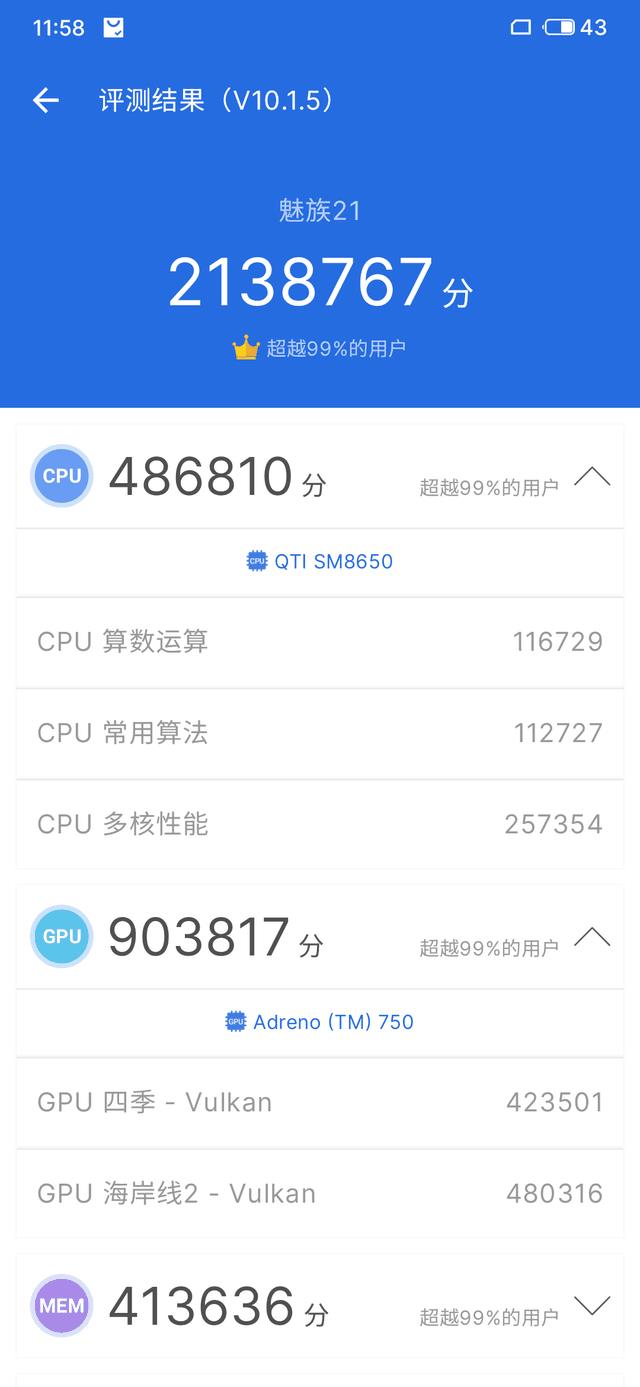
According to the actual measurement, Meizu 21 has achieved more than 2.10 million points. It has reached the level of the third-generation Snapdragon 8 flagship. It seems that Meizu’s adjustment is still very powerful.
The scoring can only reflect part of the performance of the mobile phone, and ultimately it has to be landed on the game experience. For the flagship core, the pressure is too small, and it directly goes to the original god with higher performance requirements. The picture is set to high, the frame rate is 60 frames, and the main test scene is Sumi map running map + fighting monsters. The specific frame rate is as follows.
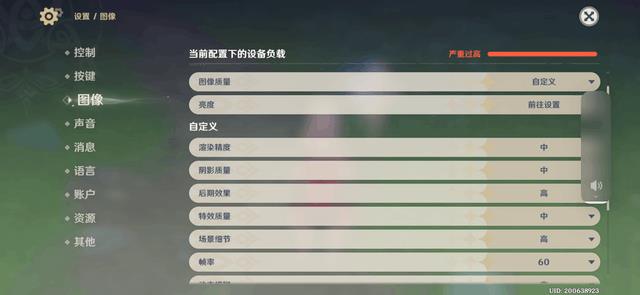
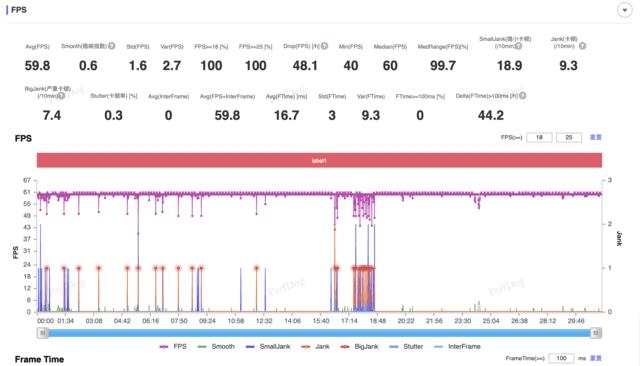
In the frame rate test of Yuanshen, Meizu 21 achieved an average performance of 59.8 frames. The overall game fluency is still satisfactory, and the picture performance is also good. Thanks to the total heat dissipation area of Meizu 21 37345mm2With its heat dissipation system and exclusive ice world cooling technology, even long-term games did not cause frame drops or frequency drops due to high temperatures.
For performance-oriented friends, the Meizu 21 can basically meet all the daily/gaming requirements.
Friends who want to buy a mobile phone and use it all the time can also believe in the ability of the third-generation Snapdragon 8, and it is expected that there will be no card in three years. If there are any shortcomings, I think Meizu still has more room for game optimization, such as updating the original god with native 2K graphics, which is still necessary to improve the gaming experience.
The performance of Meizu 21 in the image performance compared to the previous generation has a more obvious upgrade. The main camera of the new product is a 200 million pixel wide-angle main camera, which has 1/1.4 super bottom and supports 4in 1 fast straight out. Supplemented by 12 million pixel ultra-wide-angle and 5 million pixel depth of field lens. Let’s take a look at the actual proof performance of Meizu 21.



From the actual shooting sample, the main camera 200 million pixel picture performance is still quite good. 1/1.4 super bottom no matter what the scene can have a very good performance, thanks to the advantages of super high pixels, the film will be magnified many times, the plaque on the handwriting is still clearly visible, can bring the user that covers the whole picture, without losing the details of the photo.

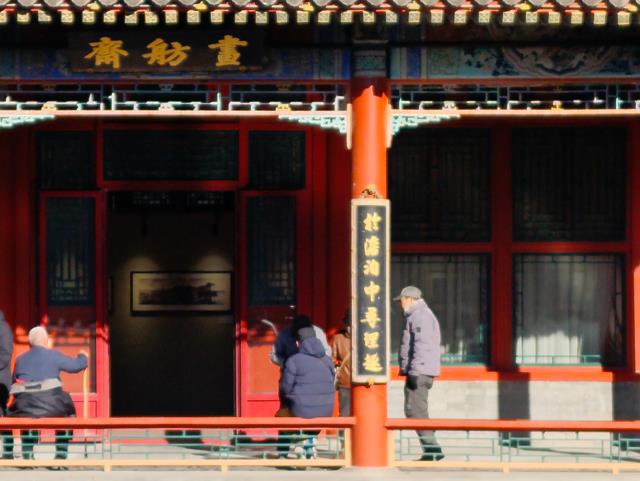
In addition, Meizu and Samsung jointly optimized the E2E AI Remosaic intelligent algorithm. In the actual shooting process, even if you take high-pixel photos, you don’t have to wait too long to shoot across the Soviet Union. The shooting experience is still quite good. And Meizu 21 also supports the P3 full-link color algorithm, and the color reproduction of the picture is quite realistic.

In terms of night scene shooting, the performance of the Meizu 21 is also quite good. In the case of poor lighting conditions, it can still maintain the detail of the subject. It is worth mentioning that the OIS optical image stabilization carried by the main camera of the Meizu 21 has helped a lot.
Significantly improve the film formation rate in low-light environments, effectively improve the sensitivity, and enhance the purity and clarity of night scenes.
Overall, Meizu 21’s image performance is still excellent in the same price mobile phone, 200 million pixel camera is also relatively characteristic, focal length coverage and film performance are deliberately satisfactory, which can meet the daily shooting needs and have certain advantages in landscape photography.
The last thing we can talk about is the Flyme operating system. The Meizu official is recently seeking everyone’s opinion. Flyme will have a new name named after the OS suffix. The first round of 32 votes has now been opened in the Meizu community. Interested friends can participate in the voting and choose your favorite name.

Since the OS is used as the suffix, it proves that the new system will carry more self-developed new technologies of Meizu, which can be seen from the new features of Flyme 10.5 carried by Meizu 21. First of all, in terms of fluency, Meizu 21 is equipped with a full-performance OneMind smart engine, which can intelligently schedule performance according to users’ usage habits to find a balance between performance and power consumption.

Reflecting on the actual experience, daily use does not feel stuck at all, and the battery life is outstanding. In places where users cannot see, Meizu has also made great efforts. The Meizu 21 pre-installed with the new Flyme 10.5 has passed the SGS Human Fluency A + certification, which can guarantee 48 months of smooth use.
In addition, Flyme 10.5 will also usher in a leap-forward upgrade in the AI model. At the moment of the generative AI fire, it is likely to become the next industry trend. It can be predicted that AI is the main development direction of the future mobile phone circle. The sooner you enter the market, you will be able to seize the opportunity.

Meizu 21 will update the Aicy AI model, and it will debut with FlymeAR smart glasses. It can be seen that Meizu’s layout in AI and meta-universe has begun. Including the Flyme Auto system, Meizu’s new system will break through Meizu’s ecological barriers and become the cornerstone of the interconnection of various systems, preparing for the upcoming new era. The Aicy AI model will be upgraded in the follow-up OTA, looking forward to its follow-up performance.
Finally, let’s make a small summary. The upgrade of Meizu 21 this time is still satisfactory, continuing the high-value characteristics of Meizu, and making no small upgrades to the core processor performance and image performance. The stacking material is still relatively sufficient, worthy of the flagship name. The new Flyme, while maintaining a high degree of fluency and freedom, has also added an AI model to challenge new opportunities, which shows Meizu’s ambition.

As a domestic veteran manufacturer, Meizu has experienced too much in recent years. It is good to see that Meizu is gradually getting back on track. A good start is half the battle. I hope to see Meizu lead the industry again in the future.
At present, the JD.com platform has opened the Meizu 21 reservation and panic buying activity. Interested friends can click the link below for details. The above is the entire content of the Meizu 21 review. If you have any questions or opinions on this new Meizu machine, please post them in the comment area below to discuss.

Huo Jianhua
As the ratings of "Hua Qiangu" continue to rise, the popularity of the coldly "Honorable" Huo Jianhua (long-term immortal Baizi painting) has risen sharply. In an exclusive interview, Huo Jianhua admitted that the popularity of "Hua Qiangu" was also unexpected. Regarding the interpretation of the role of Baizi painting, Huo Jianhua responded by questioning that "in fact, Gao Leng is not easy to play". Beijing Times reporter Xu Qinghong
High cold and faceless eyes are very important
Since "Hua Qiangu" went LIVE, the ratings have been rising all the way, and the national network’s ratings share once reached 18%. In this regard, Huo Jianhua admitted that he was also greatly surprised. He recalled that he hesitated for half a year when he took the role, because he did not want to take this kind of fairy drama before. "When the crew found me, I thought about it for a long time, and they never gave up. They lobbied me for half a year, and this sincerity finally moved me."
Bai Zi Hua, played by Huo Jianhua in "Hua Qiangu", can be called "God Restoration". Not only is his appearance and aura explosive, but standing there is the immortal in the hearts of the readers of the original novel. However, some viewers said that Bai Zi Hua is a cold ascetic immortal, who can be transformed into a face paralyzed and expressionless, and does not need acting skills at all. Huo Jianhua disagreed with this statement, "Gao Leng is actually very difficult to act. It is not enough to have a cold face. It is not that simple. How to convey the inner things to the audience, the eyes are very important." In Huo Jianhua’s opinion, the love of Bai Zi’s painting is completely different from ordinary love. "Without a certain age of maturity, I don’t understand how this man loves Hua Qiangu at all. The younger audience may prefer to express it more directly, but he can’t be direct. Why did I decide to take this play in the first place was actually because I took a fancy to this kind of implicit beauty. "Huo Jianhua believes that I have seen too many things about love, and love like Baizi’s painting is so subtle and so obscure, but it is more attractive." I think this is very well written, and it is also a test for my performance. How to perform, he has never eaten the world’s fireworks to know love because of Hua Qiangui’s efforts. The pain that cannot be expressed after losing it, I think it is a test of my acting skills. When filming, I can’t have big body movements, I can’t do this, I can’t do that, only my eyes can tell others what I want to say. This play is actually very hard for me to act. "
The first taste of brain-burning drama enjoys dual characters
In the weekly drama "He’s Coming, Please Close Your Eyes", Huo Jianhua turned into a world-renowned expert in criminal psychology, Bo Jinyan, and gained love while solving bizarre cases. Huo Jianhua admitted that this is his first time receiving a brain-burning suspense drama, and he also hopes to break through himself. "Sometimes it’s tiring to watch things too much, but some audiences like this kind of brain-burning drama, hoping to satisfy that part of the audience. This time I also broke through a scene and shot something with high intelligence, which seems to have improved me a little." Huo Jianhua said that he had to think about some of the plots in the play for a long time, "If you can’t figure it out, ask the director, and the director will explain it to me. I think young audiences are very smart now. They have watched a lot of American dramas and have very careful thinking. Our drama is also leaning in this direction."
In "Please Close Your Eyes When He Comes," Bo Jinyan has a contrasting dual personality, and Huo Jianhua said he enjoyed the performance. "Everyone has different sides, right? Being an actor is pretty good, and you can show the evil side, but you can’t in life." Now that he plays two roles in a play, Huo Jianhua said he will be more relaxed. "I will not exaggerate the difference between the two people, but will set up very detailed things, such as eyes. In the past, I would deliberately and forcefully separate the two characters, so that the audience can know when they see it. Now it seems that the performance traces are too heavy, but it is not good. It is better to express it naturally, and to reflect the difference in some small details."
Although Bo Jinyan is also a very cold character, Huo Jianhua said that he will not play him in the cold direction of Baizi’s painting. "After all, it is a fashion drama, unlike a fairy drama, it doesn’t matter how cold it is. It completely becomes a non-human firework, no human words, no human affairs, the audience will not be able to stand it, and Bo Jinyan will have a life side."
Huo Jianhua once worked with Zhang Kaizhou, the director of "He’s Coming, Please Close Your Eyes" on "Battle Changsha". For this team, Huo Jianhua said that it was very comfortable to cooperate. "The director doesn’t like auditions, and he doesn’t like too many rehearsals. He hopes to shoot the real thing as soon as he comes, and he can shoot it after figuring out the location. He hopes to shoot the most realistic state. I agree with this approach. I used to shootThere have been many rehearsals for the play, but the feeling of the performance erupting is gone. "
Don’t follow the trend and chase the IP tide to pick the script to see fate
Whether it is "Hua Qiangu" or "Please Close Your Eyes When He Comes", they are all based on popular literary IPs, but Huo Jianhua said it was purely coincidental that he did not follow the trend and follow the IPs. "I didn’t mean to shoot these, I don’t care if it is a popular novel adaptation or an IP drama. I like to shoot original dramas, but now there are relatively few originals." Huo Jianhua said that he used to be very selective about scripts. "What kind of characters and what kind of scripts you want to choose, you always hope to find a breakthrough point. Now I choose scripts to see fate, and characters are not asked for."
Rather than simply restoring the characters in popular novels, Huo Jianhua said that he is more willing to show his personality through characters. For example, in "He’s Coming, Please Close Your Eyes", many netizens felt that he was not tall enough, and there was a gap between him and Bo Jin Yan. "If it must be tall, do you want Yao Ming to play it? It’s really difficult to find someone who is exactly the same in the novel." Huo Jianhua admitted that the most he hoped for was, "At first, everyone thought you were completely unlike the characters in the novel, but after you played it, the audience saw it, accepted it, and thought you performed your own thing, which is the best for me. Maybe I don’t look like Bo Jin Yan, and I’m not as tall as him, but I don’t mind at all. The soul of a performer is not determined by height. Whether you can really enter this character and integrate the character with some things in your personality is the most important thing. "
"Veteran cadre" loves old songs and no longer plays little fresh meat
In the crew, Huo Jianhua got the title of "veteran cadre." According to Ma Sichun, the heroine of "Please Close Your Eyes When He Comes," this "veteran cadre" not only refers to Huo Jianhua’s special attention to life and diet, special health, but also often sings old songs. "He sings every day. I say it’s so old, it’s all songs I haven’t heard before. Finally, one day I heard a" Bubble "by Deng Ziqi that I can also sing, and I sang it with him." Huo Jianhua admits to having a soft spot for old songs. He sings old songs like "Night Laixiang" and "When Rijun Comes Again" every day.
The 36-year-old Huo Jianhua did not shy away from his age at all. He admitted that in the future, he will lean in the direction of maturity. "Every role must be close to his own age, so that the audience will be comfortable and he will be comfortable. Whether it is a male god Muse, an actor or an actress, when they reach an age, they naturally have the charm of his age. For me, there is no urge to play tender, and I don’t need it, because I am too young, too young, and I have played roles in my teens and twenties. Now let me play the role of tender, I will not take it, and I can’t play Xiaoxiangmeat at all, and my eyes can’t deceive people."
Unlike most celebrities who like to swipe Weibo and interact with fans, Huo Jianhua rarely surfs the Internet and does not read comments. "There will definitely be people who praise and scold, and it is better to know less, so I would rather not watch it, and I don’t know the best." Although the role is cold, Huo Jianhua believes that he is a very easy-going person in his life. "People think I am not easy to get close to, but in fact I am very easy-going, and I am very easy to get along with on the set. And I don’t change other people’s scripts indiscriminately, and I respect the scripts."
After filming "He’s Coming, Please Close Your Eyes", Huo Jianhua admitted that he wanted to take a break and go out for a vacation. As for what to shoot in the next play, he admitted that he would follow fate. Asked if he planned to become a director himself, Huo Jianhua quickly hid far away, "Being a director is so tiring, I don’t want to at all."
[Title] Feng Timo: The actress has a lot of discussions. She once had an episode with the rich second generation, and now she is in the advanced stage of cancer!
[Text] @2018, Feng Timo became popular with a single called "Buddhist Girl", which quickly became a popular track and was widely disseminated on major short video platforms. However, Feng Timo’s past of sleeping with the rich second generation was recently exposed by a large-scale video, which attracted great attention on the Internet.
According to reports, in 2016, a man named Wang worked as an accountant in a real estate company. It is said that he used public funds to give gifts in the live stream on a large scale, including gifts worth 1.60 million yuan to Feng Timo. However, the exposure of this incident has brought great pressure and negative evaluation to Feng Timo.
Ms. Von Timo faced another major setback recently when she was diagnosed with terminal cancer, prompting an outpouring of discussion and concern on social media, with many expressing their wishes and support.
Despite the buzz, Feng Timo is still a popular actress. Her musical talent and personal charm have attracted the love of many fans. Her single "Buddhist Girl" is worth mentioning, which explains the life attitude of modern young people with unique melodies and sincere lyrics, resonating with the younger generation.
Ms. Feng’s story has also brought some reflection. Both the exposure of the Fuerdai episode and her current illness have made people aware of the pressures and challenges of being a public figure. Ms. Feng’s experience is a microcosm of the entertainment industry, and it has also made people think about how to protect their privacy and dignity in this age of public opinion.
In the face of controversy and difficulties, Feng Timo has shown a strong side. Even with terminal cancer, she still faces life with courage and positivity. We hope she can overcome the disease and continue to bring us moving songs and positive energy.
In general, Feng Timo is a much-watched actress. Her story has both the interludes of public opinion and the challenges brought by illness, but she has touched the hearts of many people with her persistence and positive face. Whether it is the charm of music or her attitude towards life, people are full of expectations and admiration for Feng Timo.
[Format]
Feng Timo: The actress has a lot of discussions. She once had an episode with the rich second generation, and now she is in the advanced stage of cancer!
In 2018, Feng Timo became popular with a single called "Buddhist Girl", which quickly became a popular track and was widely disseminated on major short video platforms. However, Feng Timo’s past of sleeping with the rich second generation was recently exposed by a large-scale video, which attracted great attention on the Internet.
According to reports, in 2016, a man named Wang worked as an accountant in a real estate company. It is said that he used public funds to give gifts in the live stream on a large scale, including gifts worth 1.60 million yuan to Feng Timo. However, the exposure of this incident has brought great pressure and negative evaluation to Feng Timo.
Ms. Von Timo faced another major setback recently when she was diagnosed with terminal cancer, prompting an outpouring of discussion and concern on social media, with many expressing their wishes and support.
Despite the buzz, Feng Timo is still a popular actress. Her musical talent and personal charm have attracted the love of many fans. Her single "Buddhist Girl" is worth mentioning, which explains the life attitude of modern young people with unique melodies and sincere lyrics, resonating with the younger generation.
Ms. Feng’s story has also brought some reflection. Both the exposure of the Fuerdai episode and her current illness have made people aware of the pressures and challenges of being a public figure. Ms. Feng’s experience is a microcosm of the entertainment industry, and it has also made people think about how to protect their privacy and dignity in this age of public opinion.
Responsible editor:

Service robots, mobile infrared temperature measurement technology, cool VR panoramic movies can be seen everywhere… Walking through the exhibition halls of this trade fair, new applications brought by innovative technologies such as 5G + 8K, cloud computing, and big data are brilliant, deeply integrated with service trade, and intelligent elements are coming. New technologies empower and point out a new direction for the development of service trade.
How will 5G new technology change the way we read? Can traditional publications be upgraded into new technology products? In the exhibition area of China Book Import and Export (Group) Co., Ltd., with the help of 3D modeling panoramic dynamic technology, traditional excellent Chinese landscape paintings are presented, allowing the audience to walk into the painting and "play in the mountains and rivers", and experience the scene of "people swimming in the painting" for themselves.
According to the exhibition area staff, the company is currently actively exploring cross-industry integration development, empowering the publishing industry with new technologies, providing 5G solutions for upstream content production units, and providing 5G smart new services for downstream cultural service units. In the form of naked eye large screen and mobile VR, traditional publications such as picture books and comics are "transformed" into 3D panoramic content, thereby extending the boundaries of publications and updating the reading experience of readers.
At the China Mobile Migu booth, the audience can not only experience 5G Cloud Gaming Museum, 5G Cloud Gaming, 5G + AI Fitness, 5G + AR Concert, but also experience the "5G New Shooting Method". Using real-time 3D rendering technology, the audience stands in front of the screen and poses, and has their own 3D virtual image. As the audience’s facial expressions and body gestures change, the 3D virtual image on the screen also changes vividly.
In the exhibition area of Haidian District in Beijing, a "drum" with a diameter of 7 meters and a height of 3.5 meters attracted many people’s attention. According to Liu Lan, deputy director of the Haidian District Cultural Tourism Bureau, this is the digital Yuanmingyuan E-MAX global immersion interactive experience area. Through the 360-degree ring screen and interactive ground screen, once the audience walks into the "Yuanmingyuan Ruins", they can truly show the digital reconstruction image in front of them, and experience the grand scenery of the Yuanmingyuan hundreds of years ago.
In the special exhibition area of "5G Communication Service", the technical achievements of intelligent networked vehicles displayed by BAIC Group brightened the audience’s eyes and experienced the convenience of smart travel. 5G remote driving technology can help autonomous vehicles achieve remote monitoring and safe takeover in various situations such as loss of GPS signal, limited camera perception, access to blind spots or radar failure. Cai Suoping, member of the Standing Committee of the Party Committee of BAIC Group and deputy general manager of BAIC Group, introduced that the 5G intelligent electric vehicle jointly built by the group with Magna and Huawei is equipped with the intelligent remote control end point of Huawei 5G chip, which can realize functions such as automatic following, lane keeping, automatic lane change, automatic emergency braking, traffic sign recognition and vehicle parking assistance.
The application of new technologies in high-end intelligent manufacturing and service trade is a pair of twin brothers. You have me, and I have you. The deep integration between them will make life better.